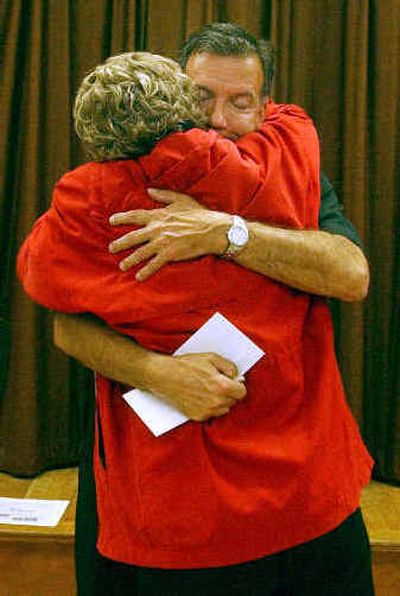Archbishop: 65 Boston parishes must close

BOSTON – The weight of a priest shortage, shrinking collections and the clergy sex-abuse scandal combined to force Boston’s archbishop to announce Tuesday that his Roman Catholic archdiocese will lose 65 parishes by year’s end.
The archdiocese, the nation’s fourth largest with more than 2 million Catholics, now has 357 parishes.
“Today is not an easy day for the people of the Archdiocese of Boston,” Archbishop Sean O’Malley said.
“The alternative to going through this exercise would be that we would experience a continual decline in some areas of our archdiocese, closing parish after parish, school after school, outreach program after outreach program.”
Older dioceses throughout the country have been closing parishes as the Catholic population shifts into the suburbs and to the South and West, said Mary Gautier, a senior researcher at the Center for Applied Research in the Apostolate at Georgetown University. Dioceses in the upper Midwest and the Northeast have seen the most extensive changes.
The closings are occurring as many dioceses nationwide face financial problems due to dwindling investment income and higher insurance costs.
The abuse scandal, which began more than two years ago in the Boston Archdiocese, has contributed to these money woes. Donations have dropped in some dioceses while others have seen abuse-related costs rise.
Last fall, the Boston archdiocese reached an $85 million agreement to settle lawsuits filed by more than 500 victims of clergy sex abuse.
O’Malley’s announcement completed a process that began in December, when he said the archdiocese would be forced to undergo a major downsizing.
He said the reduction was needed because of declining Mass attendance, a shortage of priests and the inability of the archdiocese to support struggling parishes in the midst of a financial crisis caused partly by the abuse scandal.
In the Boston archdiocese, 70 parishes in all will be affected by the downsizing, but five new parishes are being created through mergers. Another five churches will remain open as worship sites, but they’ll be maintained by neighboring parishes and their membership will be merged with those other congregations, O’Malley said.
In addition, a few Catholic schools will close or merge.
“I am profoundly aware of the emotion the announcement of the closing of a parish evokes,” the archbishop said. “I wish there was some way that all of these wonderful houses of life and prayer could remain open and alive and full. But there is not.”
The parishes will gradually be shuttered through the end of the year.
After a lengthy review process, the names of 143 churches were submitted to O’Malley for possible closure. The archbishop made the final decision on which parishes to close after consulting with bishops, priests and lay people.
In South Boston, a neighborhood with a large Catholic population, parishioners learned that St. Augustine Church – one of the oldest and grandest churches in the city – would close. The cathedral-like church opened in 1868.
Parishioner Ed Flynn called the news “devastating.”
“For almost 200 years, St. Augustine Church has been the backbone of South Boston,” said Flynn, the son of former Boston Mayor Ray Flynn.
O’Malley said many factors contributed to the need to close parishes. He said more than a third of the 357 parishes are operating in the red and 130 of its pastors are over 70 years old. Also, many buildings are deteriorating – it would cost more than $100 million to repair church buildings in Boston alone.
In deciding which churches to close, officials considered weekly Mass attendance, the number of sacraments performed at each church, the number of students enrolled in religious education, the seating capacity of the church and its proximity to other churches among other factors.
Parishes on the list to be closed may appeal to O’Malley. If that fails, they can appeal to the Vatican – but only on procedural grounds, not simply on their belief that their church should remain open, said the Rev. Christopher Coyne, an archdiocesan spokesman.